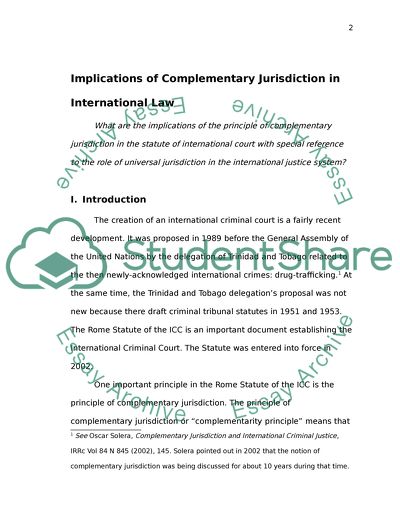Cite this document
(“Implications of Complementary Jurisdiction in International Law Essay”, n.d.)
Retrieved from https://studentshare.org/law/1398328-implications-of-complementary-jurisdiction-in-international-law
Retrieved from https://studentshare.org/law/1398328-implications-of-complementary-jurisdiction-in-international-law
(Implications of Complementary Jurisdiction in International Law Essay)
https://studentshare.org/law/1398328-implications-of-complementary-jurisdiction-in-international-law.
https://studentshare.org/law/1398328-implications-of-complementary-jurisdiction-in-international-law.
“Implications of Complementary Jurisdiction in International Law Essay”, n.d. https://studentshare.org/law/1398328-implications-of-complementary-jurisdiction-in-international-law.


